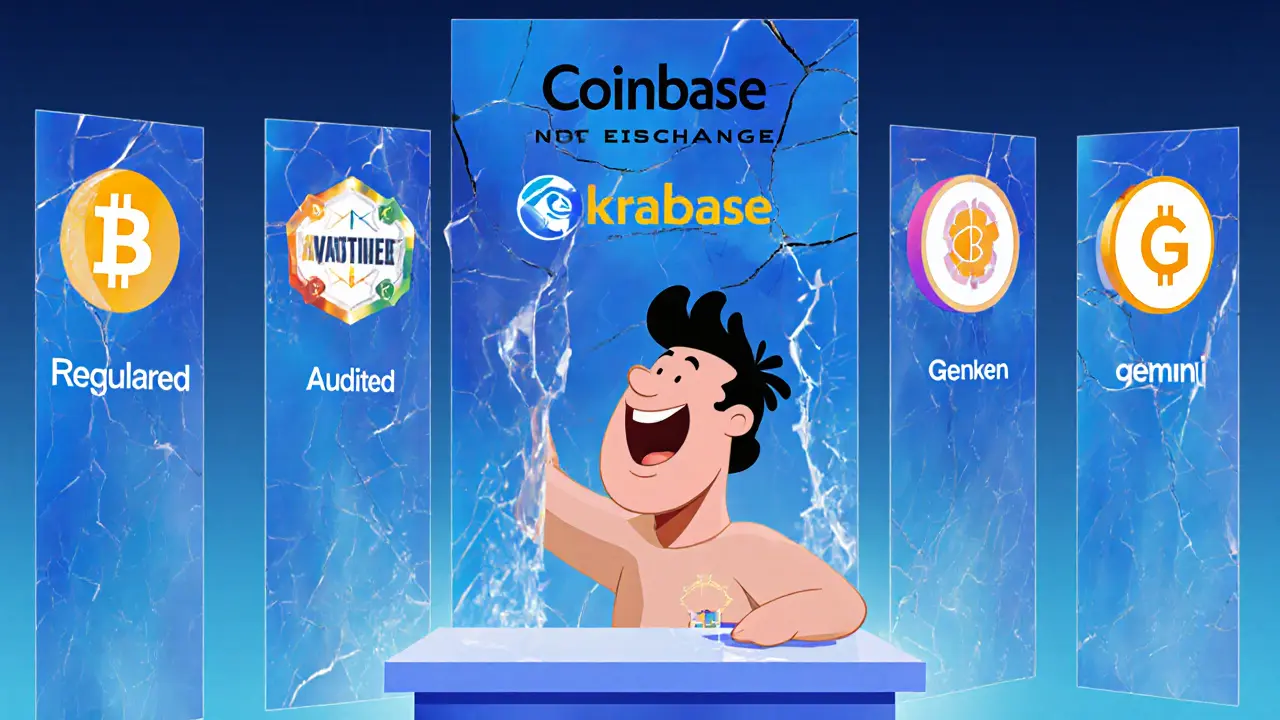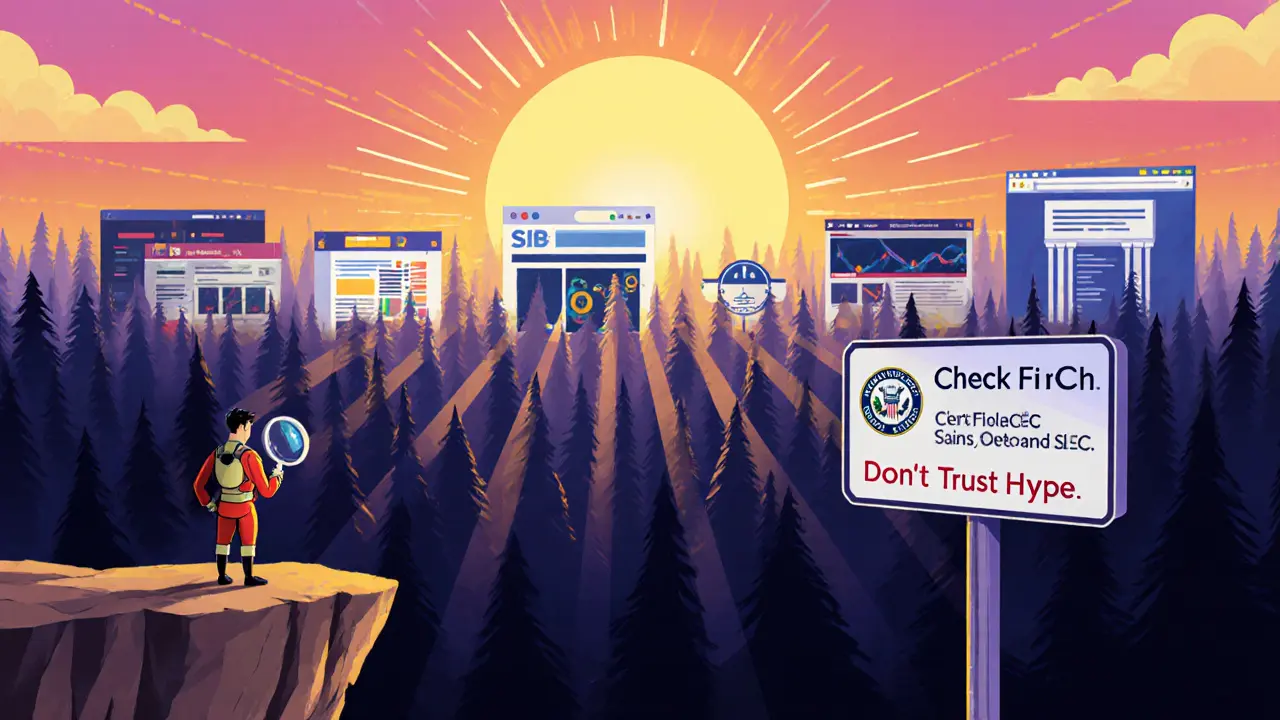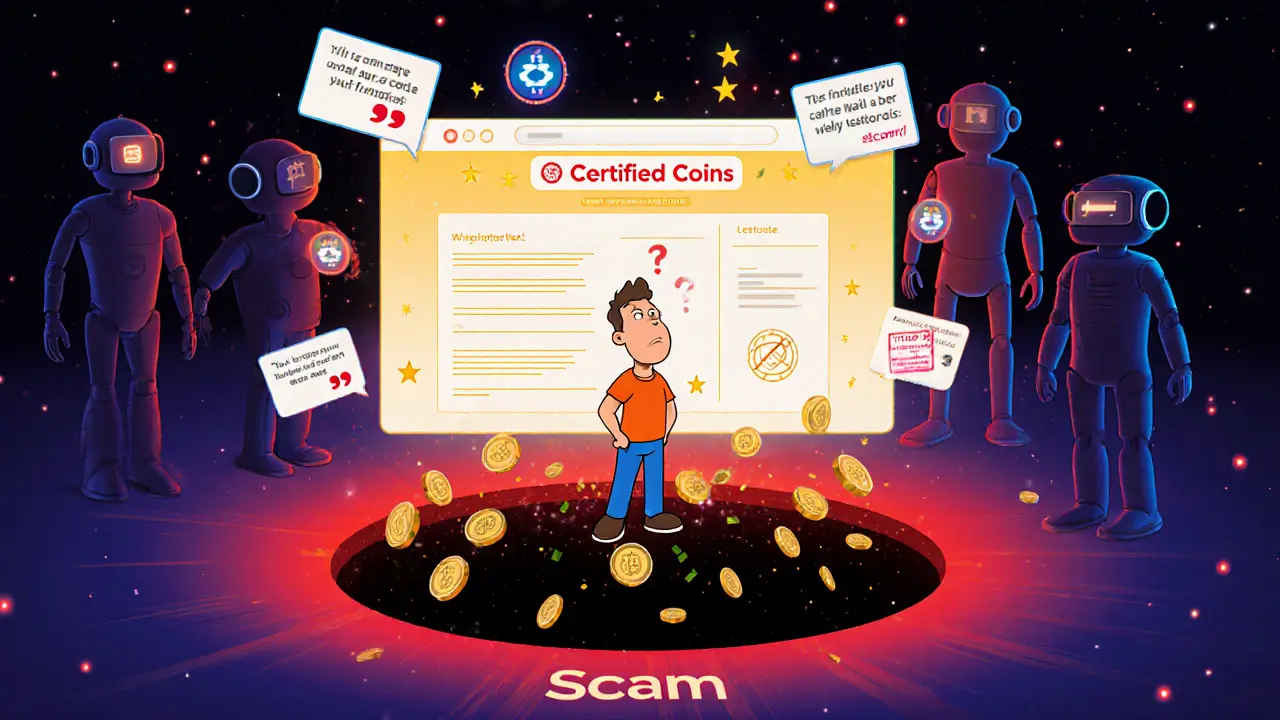There is no such thing as a legitimate crypto exchange called Certified Coins. If you’ve seen ads, social media posts, or YouTube videos pushing it as a new or secret platform for trading Bitcoin and altcoins, you’re being targeted by a scam.
This isn’t just a case of a lesser-known exchange. There’s no registration, no company filings, no customer support team, and no trace of it on any official financial or crypto regulatory database. Not on FinCEN. Not on the SEC’s list of registered exchanges. Not even on CoinMarketCap or CoinGecko. The name doesn’t show up in any credible review from Coin Bureau, Koinly, Money.com, or Trustpilot - all of which cover every major U.S. exchange in detail.
What You’re Actually Hearing About
The confusion likely comes from mixing up two different things: crypto exchanges and token standards. Some articles mention ISO 20022-compliant cryptocurrencies, like XRP, XLM, and IOTA. That’s a financial messaging standard used by banks and payment networks to make transactions faster and more transparent. It has nothing to do with an exchange named "Certified Coins." But scammers know people hear "certified" and think "safe," "official," or "approved." They use that to trick you.
How These Scams Work
Fake exchanges like this one follow the same playbook:
- They create a slick website with fake testimonials and logos that look like they belong to real companies.
- They promise "low fees," "high rewards," or "exclusive access" to new coins.
- They ask you to deposit crypto first - often claiming you need to "unlock" your account or pay a "verification fee."
- Once you send funds, your account disappears. The website goes dark. Your crypto is gone.
The SEC reported 142 cases of exchange name spoofing in Q3 2025 alone. That’s up 60% from last year. These aren’t random phishing sites. They’re well-funded operations using AI-generated videos, fake customer service chatbots, and even cloned domain names that look almost identical to real ones.
Real Exchanges You Can Trust
If you want to trade crypto safely, stick with platforms that are registered, regulated, and transparent. Here are the top U.S.-based exchanges that actually exist:
- Coinbase: Launched in 2012, publicly traded on NASDAQ. Stores 98% of assets in cold storage. Offers educational content, staking, and a simple interface for beginners.
- Kraken: Founded in 2011. Holds $1.1 billion in insurance for hot wallets. Supports over 350 cryptocurrencies. Known for strong security and deep liquidity.
- Gemini: Co-founded by the Winklevoss twins. Fully compliant with New York State regulations. Great for users who prioritize regulatory oversight.
- Crypto.com: Offers a Visa card with cashback in CRO tokens. Now lets you trade stocks and ETFs with SIPC insurance up to $500,000.
- Binance.US: The U.S. version of Binance. Has fewer coins than its global counterpart (158 as of 2025) but lower trading fees.
All of these require KYC verification - meaning you’ll need to upload a photo ID. That’s not a hassle. It’s how they stay legal and protect you from fraud.

Red Flags That Mean Run
Here’s what to watch out for when evaluating any crypto exchange:
- No clear company address or legal entity listed
- Website has no privacy policy, terms of service, or contact page
- Guarantees of high returns or "risk-free" trading
- Asks you to send crypto to a wallet address before you can trade
- Uses pressure tactics: "Limited time offer," "Only 3 spots left!"
- Domain name is slightly off - like "CertifiedCoinsExchange.com" instead of the real one
Real exchanges don’t need to beg you to sign up. They’ve been around for years, have millions of users, and get featured in mainstream news. If you can’t find a Wikipedia page or a Crunchbase profile for the exchange, walk away.
How to Protect Yourself
Before you deposit a single dollar:
- Search the exchange name + "scam" on Google. Look for Reddit threads, Trustpilot reviews, and SEC alerts.
- Check if it’s registered with FinCEN as a Money Services Business. You can search the FinCEN database yourself - it’s public.
- Look up the company on the SEC’s EDGAR database. Legit U.S. exchanges file financial reports.
- Don’t trust YouTube influencers who push obscure platforms. Many are paid promoters with no skin in the game.
- Use only exchanges that let you withdraw your crypto to your own wallet. If you can’t do that, it’s not your money.

What Happens If You Get Scammed?
Recovering funds from a fake crypto exchange is nearly impossible. Crypto transactions are irreversible. Once it’s sent to a scammer’s wallet, it’s gone - often moved through multiple mixers and chains to hide it.
That said, you should still report it:
- File a report with the FTC at ReportFraud.ftc.gov
- Submit details to the SEC’s whistleblower program
- Notify your bank or payment provider if you used a credit card or bank transfer
- Share your experience on Reddit or Trustpilot so others don’t fall for it
There’s no magic tool to get your crypto back. Prevention is your only real defense.
Final Warning
There is no "Certified Coins" crypto exchange. Not now. Not ever. The name is a trap. If someone tells you otherwise, they’re either lying or don’t know what they’re talking about. Stick with the big names. They’re not perfect, but they’re regulated, audited, and accountable. Your crypto is too valuable to gamble on fake platforms.
If you’re new to crypto, start with Coinbase or Kraken. They’re beginner-friendly, secure, and transparent. Learn how the market works before chasing risky or obscure platforms. The best way to protect your money isn’t by finding the "next big thing" - it’s by avoiding the scams that are already out there.

Jane A
November 24, 2025 AT 15:50Gus Mitchener
November 25, 2025 AT 07:13Jennifer Morton-Riggs
November 25, 2025 AT 22:22Kathy Alexander
November 26, 2025 AT 21:18Tejas Kansara
November 27, 2025 AT 19:34Rajesh pattnaik
November 28, 2025 AT 03:56Amanda Cheyne
November 30, 2025 AT 00:02Caren Potgieter
November 30, 2025 AT 00:37Linda English
November 30, 2025 AT 22:25Julissa Patino
December 2, 2025 AT 13:05Soham Kulkarni
December 3, 2025 AT 01:47John Borwick
December 3, 2025 AT 08:10Matthew Prickett
December 3, 2025 AT 19:34Jennifer MacLeod
December 5, 2025 AT 04:10asher malik
December 5, 2025 AT 07:44Omkar Rane
December 5, 2025 AT 22:35Daryl Chew
December 7, 2025 AT 15:46Tyler Boyle
December 8, 2025 AT 11:51jocelyn cortez
December 8, 2025 AT 19:24